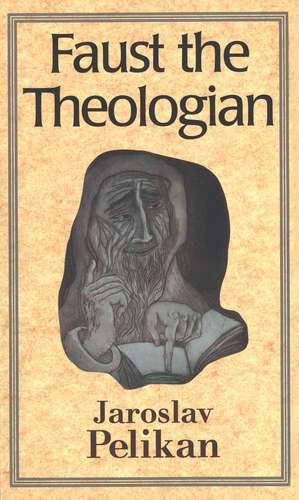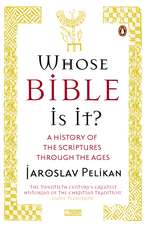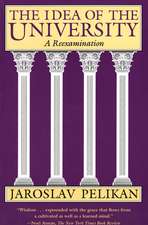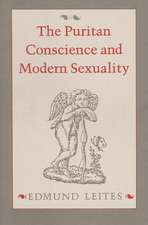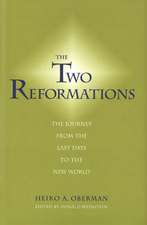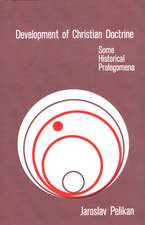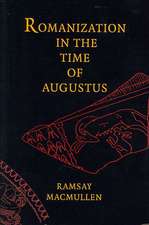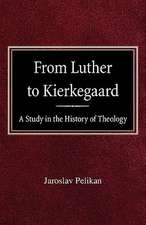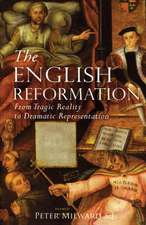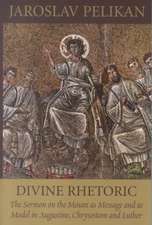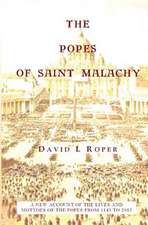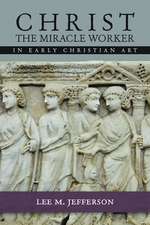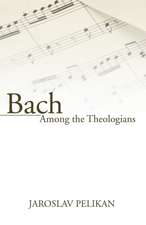Faust the Theologian
Autor Jaroslav Pelikanen Limba Engleză Paperback – 31 ian 1997
In this erudite and beautifully written book, an eminent scholar meditates on the theological implications of Goethe's Faust. Jaroslav Pelikan reflects on Goethe's statement that he was a pantheist when it came to science, a polytheist in art, and a monotheist in ethics, and he uses it for the first time to analyze Faust's development as a theologian. By so doing, Pelikan enables us to see Goethe's masterpiece in a surprising new light.
Pelikan begins by discussing Faust's role as natural scientist or pantheist. He examines Faust's disenchantment with traditional knowledge, considers his interests in geology, oceanography, and optics, and analyzes his perception of nature as a realm inspirited throughout by a single unifying Power. Pelikan next follows Faust on his journeys to the two Walpurgis Nights, where he shows how Faust reveals his delight in the polytheistic extravaganzas of Germanic and especially of Greek mythology. Finally Pelikan describes the operatic finale of the book, where Faust's spirit is drawn upward to salvation by the Eternal Feminine, and he argues that this marks Faust's evolution into moral philosopher and monotheist. Pelikan's analysis thus reveals thematic unities and a dialectical development of Faust's character that have been unnoticed heretofore.
Pelikan begins by discussing Faust's role as natural scientist or pantheist. He examines Faust's disenchantment with traditional knowledge, considers his interests in geology, oceanography, and optics, and analyzes his perception of nature as a realm inspirited throughout by a single unifying Power. Pelikan next follows Faust on his journeys to the two Walpurgis Nights, where he shows how Faust reveals his delight in the polytheistic extravaganzas of Germanic and especially of Greek mythology. Finally Pelikan describes the operatic finale of the book, where Faust's spirit is drawn upward to salvation by the Eternal Feminine, and he argues that this marks Faust's evolution into moral philosopher and monotheist. Pelikan's analysis thus reveals thematic unities and a dialectical development of Faust's character that have been unnoticed heretofore.
Preț: 230.23 lei
Nou
Puncte Express: 345
Preț estimativ în valută:
44.06€ • 47.11$ • 36.73£
44.06€ • 47.11$ • 36.73£
Carte tipărită la comandă
Livrare economică 18 aprilie-02 mai
Preluare comenzi: 021 569.72.76
Specificații
ISBN-13: 9780300070644
ISBN-10: 0300070640
Pagini: 158
Dimensiuni: 140 x 235 x 13 mm
Greutate: 0.21 kg
Ediția:Revised
Editura: Yale University Press
Colecția Yale University Press
ISBN-10: 0300070640
Pagini: 158
Dimensiuni: 140 x 235 x 13 mm
Greutate: 0.21 kg
Ediția:Revised
Editura: Yale University Press
Colecția Yale University Press
Notă biografică
Jaroslav Pelikan is Sterling Professor of History at Yale University. He is the author of, among other books, Christianity and Classical Culture, The Idea of the University—A Reexamination, The Vindication of Tradition, and Jesus Through the Centuries, all published by Yale University Press. He has received honorary degrees from universities all over the world as well as medals and awards from many scholarly societies and institutions, including the Jefferson Award of the National Endowment for the Humanities, the highest honor conferred by the U.S. government on a scholar in the humanities. He is currently president of the American Academy of Arts and Sciences, and in September 1994 President Bill Clinton made him a member of the President's Committee on the Arts and the Humanities.
